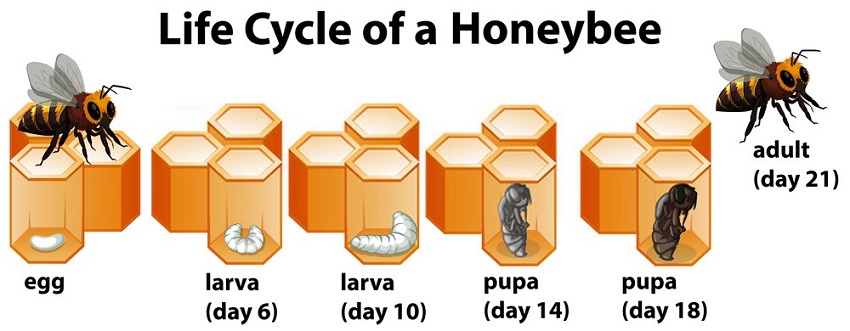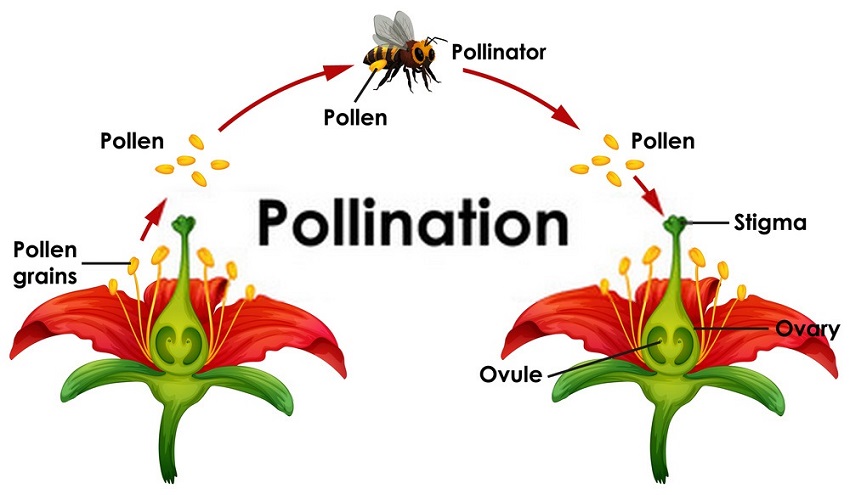It has long been known that all sorts of animals suffer from the use of commercial pesticides. In the 1950s, scientists created the pesticide DDT. DDT was widely used on crops, as a personal pesticide, and as a way to combat disease-carrying mosquitos. However, in 1962 Rachel Carson published the book Silent Spring, bringing to light all of the terrible effects DDT has on the environment.
It was quickly found that DDT actually weakens the shells of bird eggs, leading to a massive decline in the populations of many predatory birds. DDT was banned for many uses by the newly formed Environmental Protection Agency in the 1970s, but the general use of other pesticides was continued.
Now, researchers are bringing more negative effects of many other pesticides to light. A new study, published in Proceedings of the Royal Society B, shows just how drastically even the smallest amount of pesticide can affect bees and other pollinators.
To fully understand why pesticides are harmful, we have to look at a couple of important biological concepts.
Brain Development
When you were a fetus in your mother’s womb, your brain started developing. You started with a small cluster of nerves – cells that have specialized in transferring chemicals and electric signals. These cells then multiplied and spread throughout your developing body. These nerves extend to all parts of your body. In your skull, your brain begins forming.
Your brain is like the central processing system for your entire body. Though your brain starts as only a few cells, it quickly replicates to become nearly 100 BILLION different cells. These cells each connect to tens of thousands of other brain cells, forming a neural network that contains TRILLIONS of connections. In order for your brain to function properly, these connections must be specific and well-formed when you are finally born. Pregnant women are told to avoid a large number of toxins – such as alcohol and tobacco – because these substances can cause delays and deformities during brain development.
A bee brain forms in a similar way. After an egg is laid in a cell within the hive, it hatches into a small larva. This larva eats honey, a substance created as bees eat and regurgitate the nectar they find in flowers. Their brain develops during this time, finally forming the adult brain in the pupa stage. You can see the whole bee lifecycle below:

When bees bring back nectar that has pesticides in it, the pesticides may not kill the adult bees. But, they are transferred directly to the developing larva. Pesticides cause major disruption in brain development, leading to serious performance declines later in life.
To understand why this can be so devastating, it’s important to understand a bee’s role in an ecosystem.
Pollinators in the Ecosystem
Pollinators are organisms that transfer plant pollen from one plant to another. Pollen is essentially plant sperm, and it is used to fertilize plant eggs found deep within a flower. After a flower is fertilized, it can produce fruits, nuts, and seeds. Therefore, pollinators are responsible for much of the food production throughout the world.

In this study, researchers showed that bees with pesticide-ridden brains do not function well as adults. In fact, they found that these bees essentially had major brain damage and could not perform their essential “bee tasks”, such as creating and maintaining the hive, communicating with other bees, and collecting nectar. If pesticides get to all the larva in a hive, the hive will quickly die because these bees will not be able to complete basic hive upkeep tasks. If we keep poising bees and other pollinators with pesticides, they could eventually die off completely.
That’s bad news for farmers! While pesticides can help protect their crops from crop-eating insects, the same pesticides are slowly destroying insects that are necessary to produce fruits, vegetables, nuts, and seeds. Without bees and other pollinators, the entire agricultural industry would collapse in on itself like a dying star.
